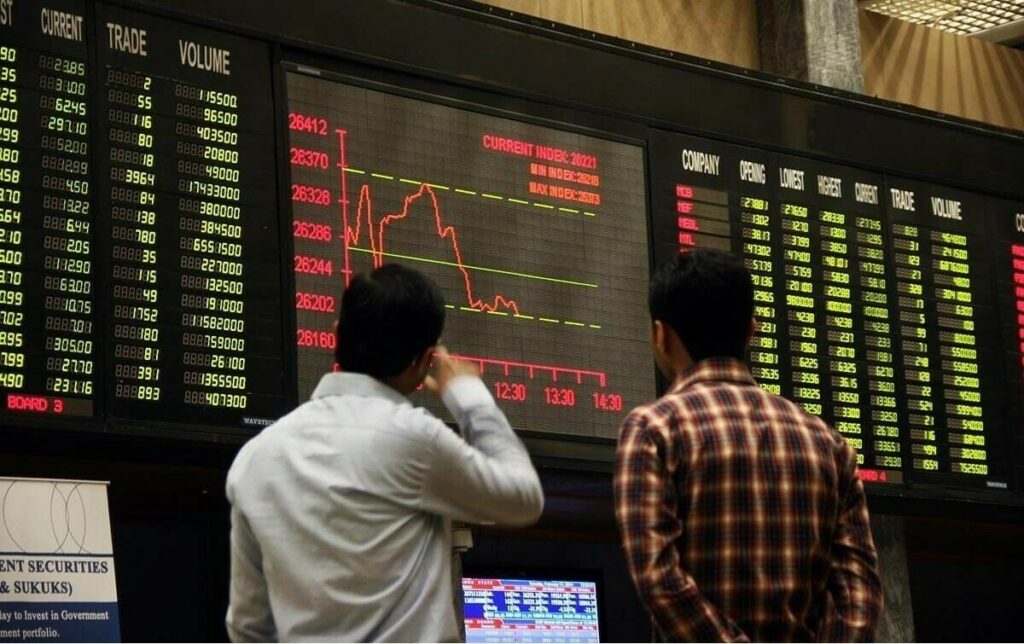The Pakistan Stock Exchange (PSX) experienced a significant disruption today as trading was halted for an hour following a sharp intraday decline of 6.3% in the benchmark KSE-100 index. The abrupt market downturn was triggered by escalating military tensions between Pakistan and India, particularly reports of multiple Indian drones being shot down over major Pakistani cities, including Karachi and Lahore.
According to the Inter-Services Public Relations (ISPR), Pakistan’s military neutralized 12 Indian drones that violated its airspace, labeling the incursions as acts of “naked aggression.” The drones, identified as Israeli-made Harop models, were reportedly targeted over several key locations, with ongoing operations to address the threat.
The military confrontations have heightened fears of a broader conflict between the two nuclear-armed neighbors. The situation escalated after India conducted airstrikes on what it described as “terrorist infrastructure” in Pakistan, following a deadly attack in Indian-controlled Kashmir that killed 26 people, mostly Hindu tourists. Pakistan has denied involvement in the Kashmir attack and has vowed to respond to the Indian strikes.
The PSX’s trading halt reflects investor anxiety over the deteriorating geopolitical situation. Analysts warn that continued military engagements could further destabilize the region’s economies and financial markets. Both countries have placed their armed forces on high alert, and there are reports of civilian evacuations from border areas.
As the international community urges restraint, the potential for further escalation remains a significant concern for regional stability and economic confidence.
Market analysts warn that both regional stock markets, particularly Pakistan’s, may continue to experience instability in the coming days as investors respond to evolving developments on the ground. Many are closely monitoring government statements, military movements, and diplomatic efforts to de-escalate the situation.
While the full economic impact remains to be seen, both countries now face the challenge of balancing security priorities with economic stability in an already volatile regional climate.

